Why HIV Support Groups Matter: Connecting with Others for Better Health
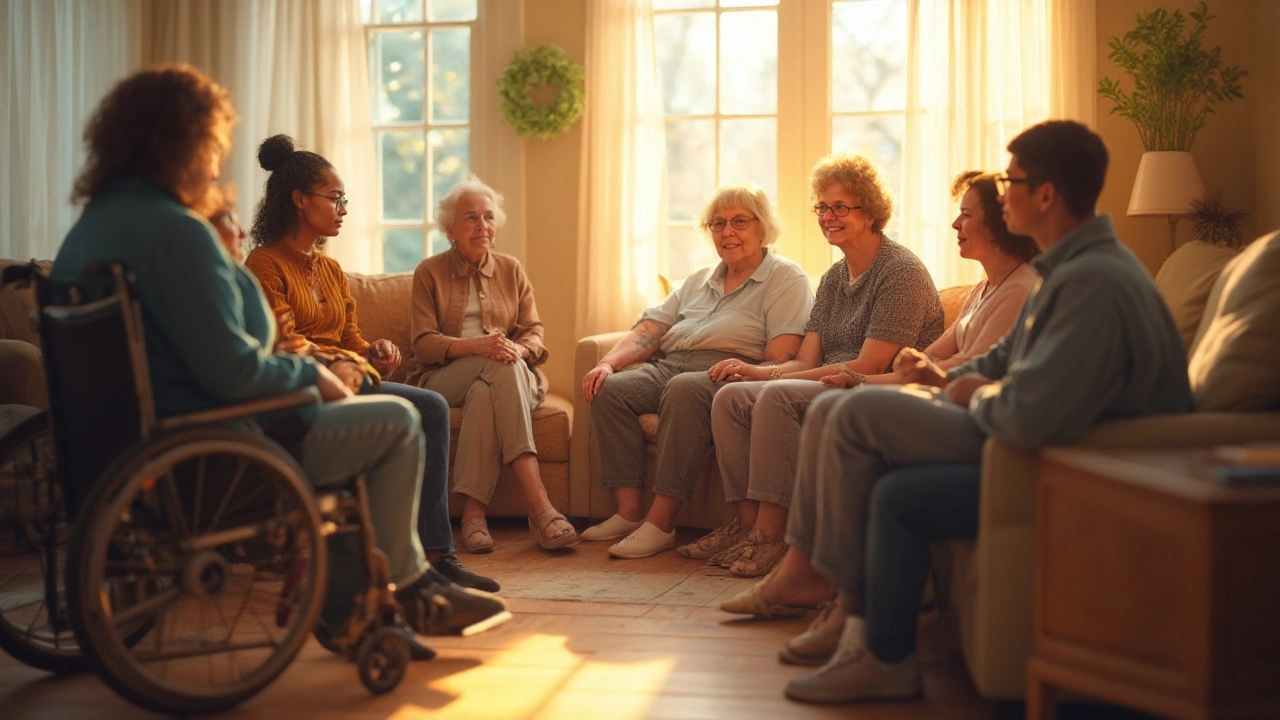
HIV support groups are community‑based gatherings where people living with HIV share experiences, information, and encouragement, designed to reduce isolation and boost health outcomes. For many, a diagnosis can feel like a sudden detour, but connecting with peers who understand the daily realities turns that detour into a supportive road‑map. This article walks you through the core benefits, the different formats available, and how to make the most of a group, all while weaving in related concepts like stigma, antiretroviral therapy adherence, and mental health.
Benefits that Go Beyond Friendship
When you sit down with others who face the same health journey, several measurable gains emerge. First, peer mentorship offers practical tips on managing side‑effects, navigating healthcare, and handling disclosure. Studies from the International AIDS Society show that participants in peer‑led groups have a 15% higher rate of viral suppression compared to those who stay isolated.
Second, emotional wellbeing spikes. The quality of life metric used by WHO evaluates physical health, psychological state, social relationships, and environment typically improves by 0.8 points on a 10‑point scale after six months of regular attendance.
Third, adherence to antiretroviral therapy (ART) the medication regimen that keeps HIV viral load low rises, because group members hold each other accountable and share reminder tools.
Different Flavours of Support
Not every group fits every lifestyle. Below is a quick snapshot of the most common formats, their typical size, cost, and who leads them.
| Format | Leadership | Typical Size | Cost |
|---|---|---|---|
| In‑person, community‑center | Professional facilitator + peer co‑chair | 8‑15 | Free-$20 per session |
| Online forum (e.g., confidential app) | Moderated by community health worker | Unlimited | Free |
| Peer‑led weekly meetup | Volunteer peer mentor | 5‑12 | Free |
| Hybrid (monthly in‑person + weekly Zoom) | Mixed professional & peer | Varies | $10‑$30 per month |
Choosing the right format hinges on personal comfort, internet access, and whether you prefer face‑to‑face connection or the anonymity of a digital space.
How to Find the Right Group
Start with three easy steps. First, ask your primary care physician or HIV specialist about local referrals-they often have lists of accredited groups.
Second, search national organizations like the Australian Federation of AIDS Organisations (AFAO) which maintain an online directory of both physical and virtual meet‑ups.
Third, test the waters. Attend a single session before committing. Pay attention to the group’s tone: is it judgment‑free? Does the facilitator encourage participation? If you feel safe, you’ve found a good fit.
Real‑World Stories: What Participants Say
John, a 34‑year‑old from Melbourne, joined an peer‑led support group meeting every Thursday at a local café. He credits the group with helping him stick to his ART schedule, noting, “When we share our reminder apps, I never miss a dose.”
Maria, a mother of two, prefers the online forum run by a community health worker because she can log in after the kids go to bed. She says the anonymity lets her discuss sensitive topics like sexual health without fear of being judged.
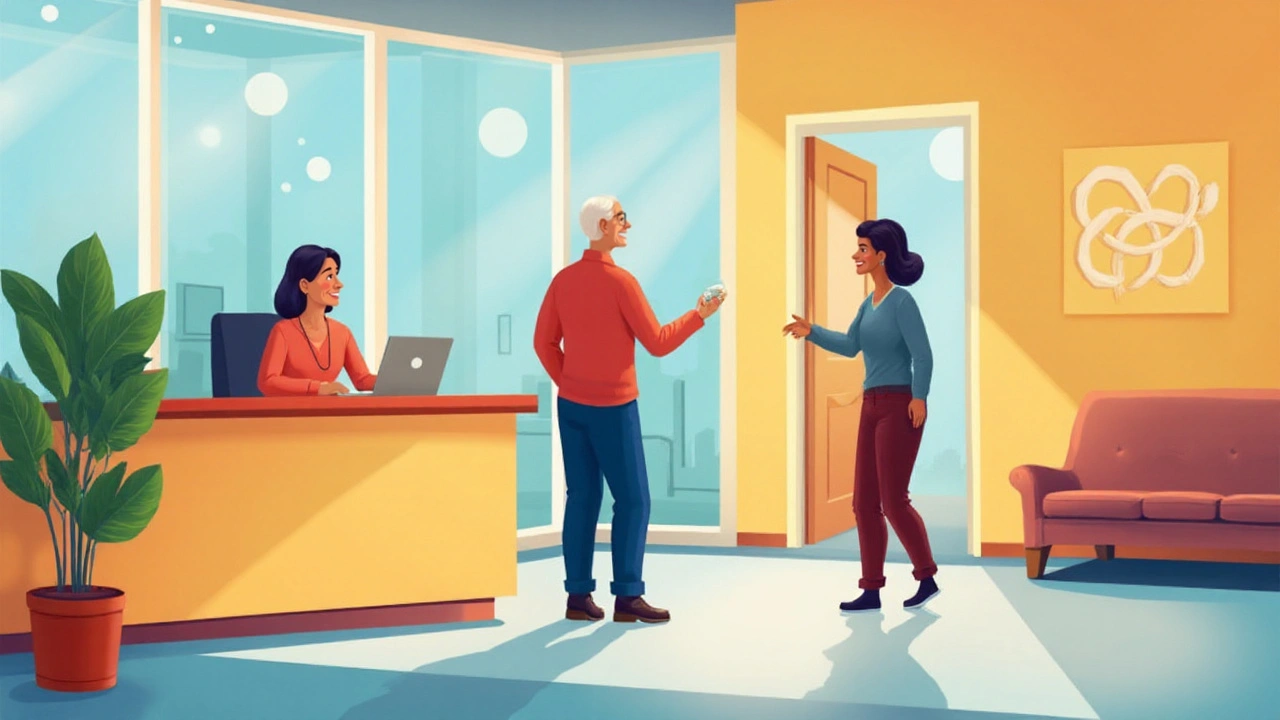
Linking Support to Medical Care
Support groups are not a stand‑alone solution; they complement clinical care. When a group discusses medication side‑effects, it often triggers a conversation with a clinician, leading to regimen adjustments that improve adherence.
Many programs now embed adherence counseling structured sessions that teach coping strategies for taking daily ART within the group meeting. This integrated approach reduces hospital admissions related to opportunistic infections by up to 20%.
Overcoming Common Barriers
Stigma remains the biggest hurdle. To counter it, groups adopt confidentiality agreements and use neutral meeting locations (e.g., community halls rather than clinics). A recent Australian study found that 70% of participants felt less worried about discrimination after six months of group involvement.
Another barrier is digital literacy the ability to use online tools effectively. Many NGOs now offer free workshops teaching basic smartphone skills so members can join virtual groups confidently.
Tips to Get the Most Out of Your Group
- Set personal goals: Whether it’s improving medication adherence or reducing anxiety, write down what you hope to achieve.
- Be an active listener: Listening validates others and often sparks new insights for yourself.
- Share resources: Apps for pill reminders, nutrition guides, or local transport discounts-your contribution builds collective strength.
- Respect boundaries: Not everyone wants to discuss sexual health or finances. Ask before diving into sensitive topics.
- Follow up: After each meeting, jot down key takeaways and try one new suggestion within the week.
Related Concepts Worth Exploring
Understanding the broader ecosystem helps you navigate your health journey more confidently. Below are topics that often intersect with HIV support groups:
- Mental health services counselling and psychiatric care tailored for people living with chronic illnesses
- Community health workers trained locals who bridge the gap between clinics and patients
- Legal rights and anti‑discrimination laws Australian legislation protecting people with HIV from workplace and housing bias
- Holistic wellness programs incorporate nutrition, exercise, and stress‑reduction techniques alongside medical treatment
Each of these areas can be a next step after you feel comfortable in a support group, deepening both knowledge and resilience.

Frequently Asked Questions
What age groups can join HIV support groups?
Most groups are open to adults 18 and over, though many organisations run youth‑specific meet‑ups for ages 13‑17 with parental consent. Check the group's description for age eligibility.
Are online HIV support groups secure?
Reputable platforms use encrypted connections (HTTPS) and require password‑protected logins. Moderators also enforce strict confidentiality rules to protect members' identities.
How often should I attend a support group?
Consistency matters. Aim for at least one session per week or two per month. Regular attendance builds trust and maximizes the health benefits discussed earlier.
Can support groups help with medication side‑effects?
Yes. Members often share coping strategies-like timing meals, using over‑the‑counter remedies, or asking doctors for alternative formulations. Peer advice can complement professional guidance.
What if I feel uncomfortable sharing personal details?
Respect your boundaries. Many groups allow you to listen silently at first. Over time, you may find that sharing little bits-like a medication tip-feels safer than full personal narratives.
Do I need a referral to join a support group?
Not always. Some community‑run groups are open‑door, while others require a clinician’s referral to ensure appropriate medical oversight. It varies by provider.
How are support groups funded?
Funding comes from a mix of government health grants, non‑profit donations, and occasional participant contributions. Free options are widely available, especially in public health clinics.

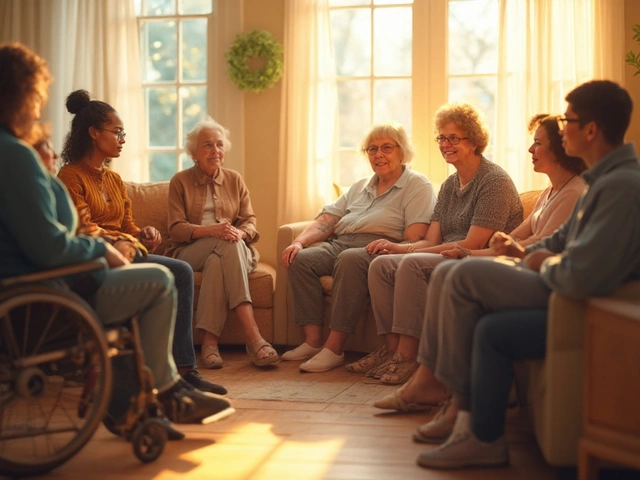

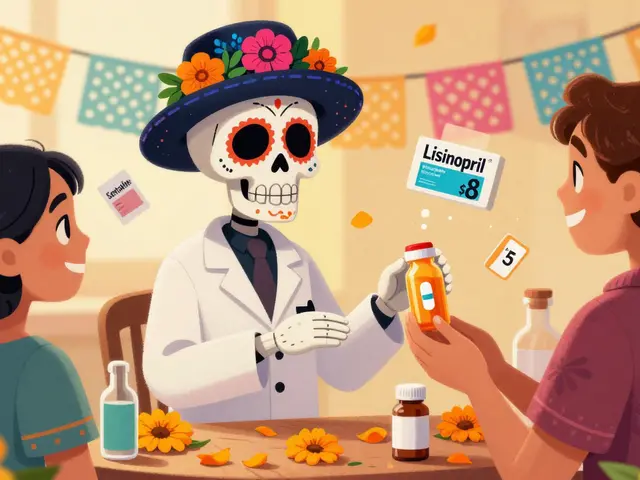


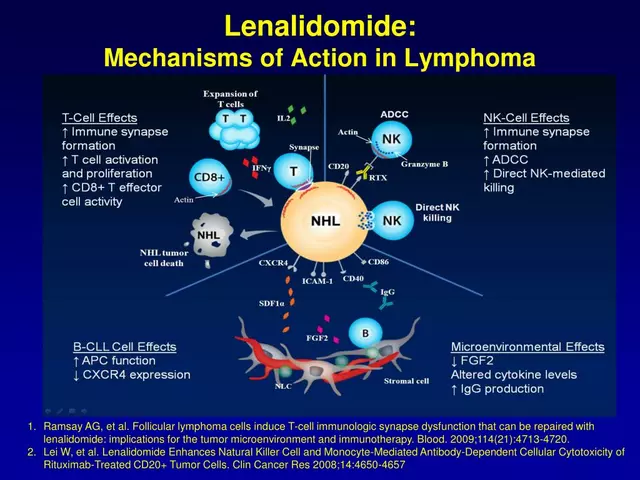
If you think these support groups are just a feel‑good gimmick, consider that many of them are funded by entities that thrive on keeping patients dependent on a system that monitors every heartbeat and every pill taken. The veneer of "community" can mask surveillance, and the data collected can be used to shape public health narratives that serve agendas far beyond individual well‑being. It’s not paranoia to question why a charity pushes a one‑size‑fits‑all model when the lived realities are so diverse.
While it’s easy to get caught up in skepticism, there’s real value in peer connection that many studies back up. Seeing a fellow traveler navigate the same medication schedule can demystify the process and cut through the fear that often stalls adherence. If you give a group a chance, you might find the support you’ve been missing, not a hidden agenda.
The article glosses over the fact that not all support groups operate with the same standards, and many prioritize agenda‑driven messaging over genuine peer support. A genuine group should empower participants, not spoon‑feed them scripted talking points that echo health ministry propaganda. If you’re looking for unbiased assistance, vet the facilitators thoroughly and demand transparency about funding sources.
Honestly, stumbling into a supportive community can feel like finding a lifeline after a long, isolating swim. You walk into the room (or log onto the Zoom) and hear someone echo the exact frustration you felt about medication side‑effects, and suddenly you’re not alone. The facilitator might share a quick hack-take your dose with a snack rich in protein to curb nausea- and you walk out with a practical tip that actually works. Over the weeks, those small victories add up, turning the dread of daily pills into a manageable routine. You start to notice your viral load numbers drop, and confidence blooms where anxiety once ruled. The peer‑led format also creates a safe space for discussing topics that doctors rarely have time for, like navigating relationships or dealing with discrimination at work. That openness can be transformative, as it validates experiences that often feel too personal to voice elsewhere. Moreover, the camaraderie built in these groups fosters accountability; a simple text reminder from a fellow member can be the nudge you need on a rough day. The emotional boost isn’t just feel‑good fluff-it translates into measurable health metrics, as research repeatedly shows improved CD4 counts among consistent attendees. When you share resources like a new reminder app or a discount on transport to the clinic, you contribute to a virtuous cycle of collective empowerment. Eventually, the group becomes a trusted extension of your care team, complementing medical advice with lived wisdom. Even if you start out silently listening, the gradual sense of belonging can ease the stigma that often makes people hide their status. You might even find yourself volunteering to co‑lead a session, reinforcing your own commitment to staying healthy. In short, these groups are more than social gatherings; they’re strategic allies in the journey toward viral suppression and holistic well‑being.
Data shows peer groups improve adherence rates by a measurable margin.
Feeling the energy in that long post reminds me how crucial it is to have a space where we can vent without judgment 😊. I’ve been in both in‑person cafés and online forums, and each has its own vibe that can lift you up on tough days. The real win is when someone shares a tiny habit-like setting an alarm for meds-and it sticks. That’s the kind of practical, human‑scaled advice that makes a difference.
Allow me to point out that while personal anecdotes are sweet, the article missed addressing the digital divide that keeps many from accessing online groups. In rural areas without reliable internet, a “free” virtual community is just a pipe dream, pushing those folks back into isolation.
It’s high time we recognize that the US health infrastructure isn’t the only model worth emulating; other nations have honed community‑based support long before it became a buzzword. The article could have highlighted how cultural nuances shape group dynamics, not just the generic format list.
Indeed, the over‑emphasis on “one‑size‑fits‑all” ignores the crucial role of localized, culturally‑sensitive facilitation; without it, groups risk becoming performative.
I’ve seen the difference a gentle, non‑judgmental space can make for someone terrified of disclosing their status. It’s all about creating a vibe where people feel safe to share, even if it’s just a single line about a tough day.
While the sentiments are noble, the piece skirts around the glaring reality that many support groups lack professional oversight, leaving participants vulnerable to misinformation.
That’s a fair point; however, a balanced approach can involve training peer leaders with basic medical literacy, ensuring the group remains both supportive and fact‑checked without turning it into a clinical setting.